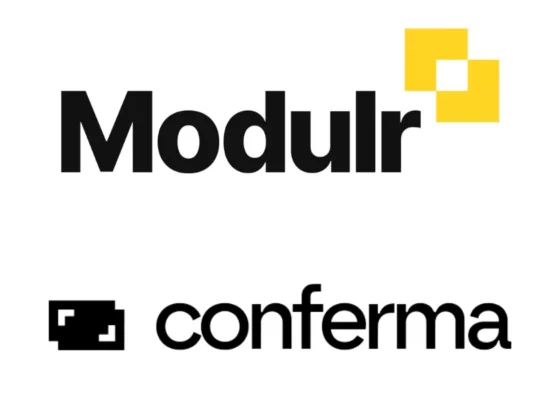With the increased popularity of cloud storage and computing systems, information that used to be stored on-premise now sits in data centers around the world, making it more challenging to comply with data processing regulations. Data sovereignty for hotels has become a critical part of a hotel’s IT strategy. But what exactly is data sovereignty for hotels and what does it mean for business today?
The hospitality industry works best when it has good amounts of guest data and preferences. An industry like hospitality, which is all about personalization, can’t operate without good data. Today, data sovereignty is still a new concept that is more important than ever, especially with increasing amounts of personal data being stored in places the guest does not control nor even fully comprehend.
Note: Shiji and the Insights team are not providing any legal advice in this article. This article is being provided for general information and overview purposes. Readers are encouraged to work with their privacy officers and/or legal counsel and advisors to determine what data protection measures they should take.
What’s new in Data Sovereignty for Hotels in 2023?
- Increased Scrutiny on Data Protection
The past year has witnessed a heightened focus on data protection and privacy globally, with numerous high-profile data breaches and increased regulatory scrutiny, necessitating stricter compliance measures for hotels. - Strengthening of Privacy Regulations
Privacy regulations, such as the California Consumer Privacy Act (CCPA), Brazilian LGPD, and South African POPI, have been implemented or updated in various jurisdictions worldwide, requiring hotels to adapt their data practices to ensure compliance. - Expansion of Data Localization Laws
Several countries have introduced or strengthened data localization laws, mandating that the personal data of their citizens be stored within their borders, posing challenges for international hotel chains and their data storage strategies. - Rising Awareness and Expectations of Guests
Guests are becoming more aware of data privacy issues and are increasingly concerned about how their personal data is collected, processed, and stored, expecting hotels to demonstrate robust data protection measures and transparency. - Technological Advancements in Data Security
Hotel technology providers have enhanced their offerings by incorporating advanced data security features, such as encryption, access controls, and audit logs, to ensure the protection of guests’ personal data. - Industry Collaboration for Data Protection
Hotel industry associations and organizations have recognized the importance of data protection and privacy, leading to collaborative efforts in developing industry-wide guidelines and best practices to assist hotels in meeting regulatory requirements. - Ongoing Legal and Regulatory Developments
The legal and regulatory landscape surrounding data sovereignty and privacy continues to evolve, with ongoing discussions, amendments, and court rulings that may impact hotels’ data management practices, necessitating regular updates and compliance monitoring.
The Relationship between Data Sovereignty, Residency, and Privacy
The concepts of “Sovereignty”, “Residency”, and “Privacy” are closely related when it comes to data, but they require some clarification.
Data residency refers to businesses deciding the geographical location where their data will be stored. They may, for example, choose one particular country due to its favorable privacy regulations or low-tax environment. For example, a company – located in country “C” – may have found it favorable for their business to store their data in country “B” where they can save on certain costs. Thus, the data residency is country “B”.
Data sovereignty for hotels refers to stored data being subject to a specific country’s laws This means it must respect the regulations of that country, such as privacy and other regulations (including that the data must be accessible to the government in case of legal need). So, in the above example, the data would be accessible and governed by the rules of country “B” even if neither the company nor the customers are located there.
While Data privacy is related to data sovereignty and data residency, it is again different in that privacy is how one protects personal data from being misused. In the example above, this is quite obvious if the data from a citizen of country “A” is stored in country “B” and country “B” has very lenient data protection laws, it could pose an issue for the citizen of country “A”. These three concepts are thus closely related, but not the same.
Data sovereignty controls how and, more importantly, where users’ data is stored. The notion is that data should always be subject to the nation’s legislation where it is collected. For example, if certain user information is collected in a European hotel, the EU regulation (GDPR) should prevail. In hospitality, this is particularly intricate, as users’ data could easily be created in the US (to book the reservation) and stored in a hotel in Europe, creating gray areas in the interpretation of the regulation.


While the European regulations of GDPR (General Data Protection Regulation) are often cited as regards to data sovereignty, it is important to differentiate between GDPR and pure data sovereignty. Generally, many data sovereignty initiatives (including data localisation laws, e.g. in Russia) have been introduced to ensure that personal information is given appropriate protection irrespective of its location. This idea has been viewed as closely linked with governments/control (because some countries require the data to be maintained within its borders), but it could interfere with the free flow of freedoms or simply the free flow of data (a concept rooted in the EU).
If the data about how citizens of one country live is stored in another country where their freedoms and protections are different, it poses a major potential problem.
GDPR does not provide data residency requirements per se, but instead, it regulates cross-border transfers in general. For example, GDPR does not prohibit cross-border transfer. Still, it is required to have a basis for the transfer and implement appropriate safeguards aimed at ensuring that personal data are protected no matter where they are stored.
RELATED:
Arguably, the most controversial aspect of data sovereignty is how it also dictates the way governments can or cannot access user information. A typical example is the Patriot Act: the US Government has the legal right to access data that is stored on US soil. This is similar to China which has rights for data stored on its soil, and, in all cases, it is a right that governments exert in the name of national security. This becomes an issue when the data of one country’s citizens is stored in another country, and national security cannot be enforced. Thus, the need for data sovereignty legislation.
Data Sovereignty for Hotels, A Political Problem?
While there is a lot of political and public relations equity in the topic of data sovereignty, this is primarily an issue of protecting peoples’ and companies’ data from being misused. Beyond politics and press, the reason why data sovereignty is important is that citizens and companies live and operate in their country and follow the laws, enjoy the freedoms and the protections that come with living or operating in their country.
These freedoms and protections are known to the citizens and businesses who can operate with prediction since they can access their laws. What they do and how they live is adjusted around These freedoms and protections are known to the citizens and businesses, who can then operate with prediction since they can access their laws. What they do and how they live is adjusted around their local laws. But, if the data about how they live is stored in another country where these freedoms and protections are different, it poses a problem.
So, beyond the political aspect, this issue is essential for both people and companies and how they conduct their lives and businesses. This is the real reason why it is so important.
It is crucial to state this issue in order to understand the reasons behind data sovereignty. It is about keeping people and businesses’ freedoms and protections in the place where they live and conduct business because those are the rights, rules, and legislations they live by.
Luckily, by now, most major cloud computing providers have built-in systems to control where the data is being processed and stored, even though this is not necessarily the case in hotel tech.
Many of the current concerns that surround data sovereignty relate to enforcing privacy regulations and making sure that data stored in a foreign country is not collected by the company’s host country’s government without its consent. Data regulations are constantly changing to best address this quickly evolving topic, meaning there is no simple rulebook to follow. However, one rule will always apply: The data owner is responsible for knowing precisely where their data is stored, and for taking the necessary steps to ensure that they comply with the legislation that governs that location.
Data Security and Privacy in Hotel Technology
In our data-driven industry, security is often synonymous with the protection of guests’ personal data. The principal data breaches of the last few years involved guests’ information stored in Property Management Systems (PMS). Yet, hotels need to store personal data to operate and thus maintain high-security levels to protect their guests.
Security of personal data is a particularly central topic for privacy requirements. Not complying with all the privacy regulations (such as European GDPR, Californian CCPA, Brazilian LGPD, or South African POPI) can be a threat, one that should be identified as early as possible in the process of selecting technology solutions. Ensuring that the compliance of the system is verified by an external auditor and certified – for example, with an ISO/IEC 27018 certificate, the code of practice for protection of personally identifiable information (PII).
That being said, it’s undeniable that modern systems have an advantage when it comes to data protection, as they were created when GDPR and similar regulations were developed. Older software may have a limited architecture that makes it much harder to be compliant with privacy regulations. This is particularly challenging for large, on-premise systems because, in extreme cases, security measures can’t even be applied, like some legacy technologies that do not support encryption.
Data Residency and Cloud Systems
For a system to be compliant with the main security and privacy requests, let’s debunk some myths about data sovereignty. As we’ve already discussed, the main idea of data sovereignty is that a customer’s data should be subject to the country’s laws in which the data is collected and processed. The data residency of personally identifiable information is a bigger challenge for cloud-based solutions compared to non-connected on-premise systems. Luckily, by now, most major cloud computing providers have built-in systems to control where the data is being processed and stored, even though this is not necessarily the case in hotel tech.
For example, the Microsoft 365 website clearly states that “we start with the assumption that our enterprise customers would like to have their business data stored and processed close to home. Wherever possible, we do just that.” So, the location for tenants created with a billing address in France or Germany, for example, will never be the US, but the EU.


Data protection is now a standard for all major cloud computing platforms. The implications of increasing user experience by distributing data brings with it additional complications of data privacy, data sovereignty and protection. Hotel companies looking to upgrade their systems should carefully review the data protection options of their providers and ensure their vendors are utilizing these features fully.
Amazon Web Services offers the possibility to use different regions of AWS so that the application can be deployed in multiple locations, such as the EU, US, China, and so on. Customers have the possibility to decide in which part of the world their data (or their customers’ data) should be stored. In practical terms, a hotel technology vendor can build a storage system for global chains where the data from European hotels is stored in the EU, data from US hotels is stored in the US, data from Chinese hotels is stored in China.
Examples of Data Privacy in Hospitality
In our industry, if a hotel is working with a provider that is following both security and privacy guidelines, it will be able to have its data stored in a particular region, according to where the property is located. However, hotel chains and groups may need their guests’ data to travel between different regions. A fitting example is loyalty programs: loyal guests should be recognized at any hotel of the chain or group, and they should be able to check their loyalty points no matter where they are.
Transferring the data to another region is achievable if the guest has explicitly agreed to share their data beyond the region. Then, based on the local regulations, data can be shared either globally or with another region. In some countries, this means that a copy must be kept locally, and in other countries, even within the European Union regulations differ and should be verified by professionals.
In Europe, the very nature of the service of staying in a hotel allows properties to collect and process personal data of their guests: hotels are authorized to process personal data because the data is needed to provide the service; hence consent is not the only legal basis for data processing. Moreover, unlike many Asian jurisdictions, GDPR does not require permission for cross-border data transfers within an international organisation, but that does not mean that personal data can be moved around without any safeguards and legal basis. The main goal, on the contrary, is to ensure that personal data will be protected wherever they go. GDPR requires transparency and informing individuals what happens to their personal data, including where they are transferred to and why.
On top of that, hotels can openly ask their guests to share their data if they explain in their privacy notice the personal information that will be copied abroad for global systems, such as the loyalty program mentioned before. Of course, in this case, the guests should explicitly agree and authorize joining the program and hence sending their data to other locations. Aggregated, anonymized data (such as occupancy rate, Average Daily Rate (ADR), etc.) do not fall under the regulation, so a European hotel can share this information with the headquarters in the US and vice versa.
Conclusion: Data Sovereignty Is A Moving Target
Data sovereignty for hotels especially is a relatively new concept introduced by the rise of cloud computing. We may go as far as saying that the whole idea of sovereignty is the “decolonization of the cloud.” That is why both hotels and tech vendors should approach data sovereignty as a moving target. Most countries are working on new, stricter privacy regulations, and data sovereignty is an integral part of these regulations. On this website (Data Protection Laws of the World), you can compare data protection laws worldwide and make sure you’re always compliant. Picking your vendors based on their compliance to data sovereignty laws is crucial to avoid your valuable customers’ information getting into the wrong hands.
This article originally appeared in TechTalk.Travel.







